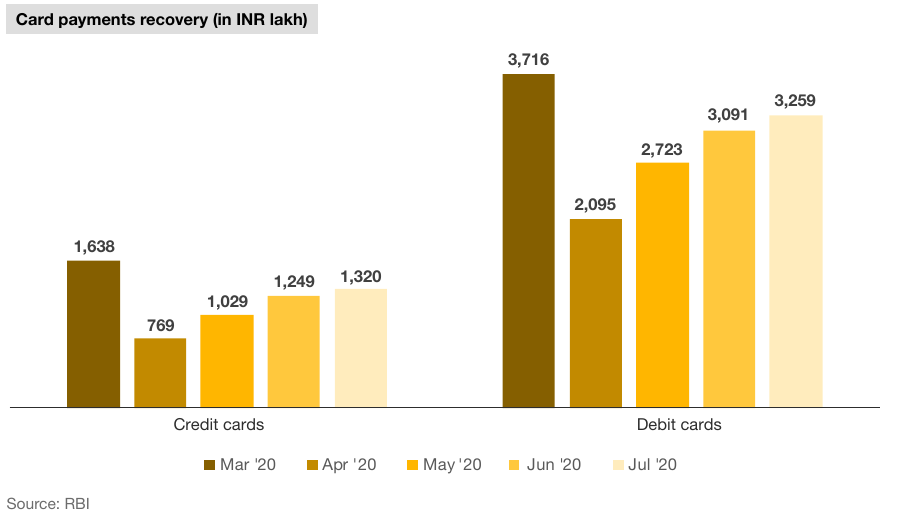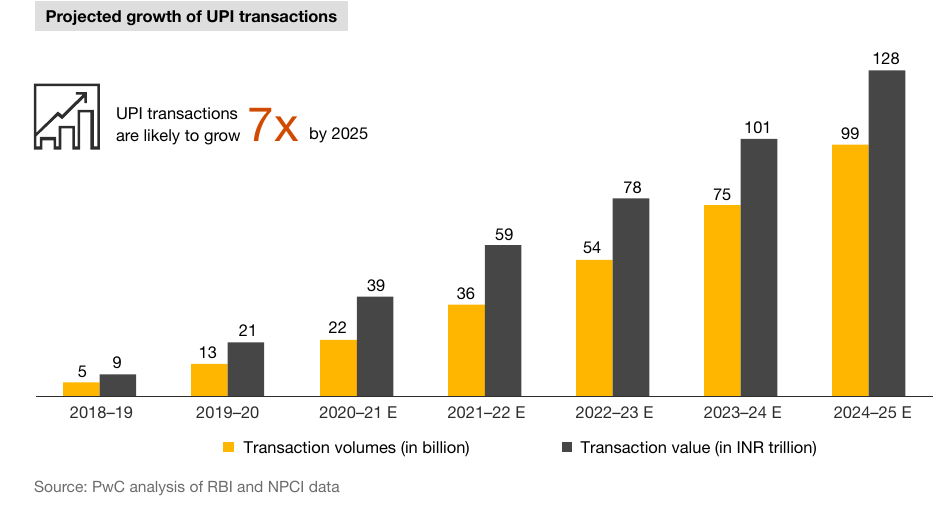Gone are the days of waiting in queues to withdraw/deposit cash at the banks. ‘Faceless, Paperless and Cashless’ is the motto of the Digital India Campaign. With this realization, India, in the past 5-6 years, has seen a huge shift in the payment modes.
Around 39% of the retail transactions in India are done digitally, and this percentage is on the rise. Let’s look at the systems that are slowly replacing paper currency.
Debit/Credit Cards
It is currently the most popular mode of payment in India. The reason behind this can be attributed to the safety, ease, and, accessibility in both online and offline modes.

Credit and debit card usage trendUPI
UPI stands for Unified Payments Interface. After debit/credit cards, UPI is the most popular mode of payments in India.
Launched in 2016, UPI has exponentially grown with a CAGR of 414%, clocking 1246 million transactions in March 2020. Since the imposition of lockdown last year, the number went to an all-time high of 1800 million in September 2020.
This can be seen as a result of the ease of the payments on these platforms as well as the tremendous marketing campaigns by the companies.

Projected growth of UPIAadhar Enabled Payment System
Under this, the Aadhar holder can transfer money from his Aadhar linked bank account to any other Aadhar linked bank account. Although India's 98% population already has an Aadhar card, it is still not quite popular.
Till February 2020, the transaction count of AEPS had crossed more than 205 million, according to NPCI.
